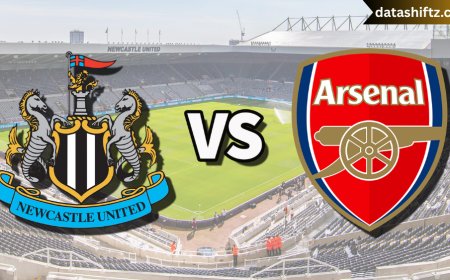Hong Kong vs Singapore: A 1500-Word Comparative Analysis of Two Asian Powerhouses
Introduction
When it comes to the world’s most dynamic city-states, Hong Kong and Singapore stand out as two premier examples. Often pitted against each other in terms of economy, culture, governance, and quality of life, these two global financial hubs offer unique blends of East and West, tradition and innovation, and legacy and transformation.
Despite their similarities—such as their colonial past, English-speaking populations, and leading roles in global trade—Hong Kong and Singapore diverge in numerous ways. This blog post will explore the fundamental differences and striking similarities between Hong Kong and Singapore across key parameters including politics, economy, lifestyle, education, cost of living, and global influence.
Let’s dive into this comprehensive comparison.
Historical Context and Political Structure
Colonial Roots and Governance Models
Both Hong Kong and Singapore have British colonial roots. Singapore gained independence from Malaysia in 1965, while Hong Kong was returned to China from British rule in 1997 under the "One Country, Two Systems" model.
| Parameter | Hong Kong | Singapore |
|---|---|---|
| Colonial Past | British (1841–1997) | British (1819–1963), Malaysian (1963–1965) |
| Current Status | Special Administrative Region (China) | Independent Nation |
| Government System | Semi-autonomous; Chief Executive Leader | Parliamentary Republic |
| Legal Framework | Common Law (inherited from British rule) | Common Law System |
| Political Freedom | Limited (especially post-2019 protests) | Controlled but stable democratic process |
Governance Efficiency
Singapore is often lauded for its efficient and transparent governance, with strict anti-corruption measures. Hong Kong, although historically autonomous, has seen increased political intervention from mainland China in recent years.
Economic Powerhouse Comparison
Financial & Business Ecosystems
Both cities are economic titans in Asia and serve as vital financial centers.
| Economic Indicator | Hong Kong | Singapore |
|---|---|---|
| GDP (2024 est.) | ~$400 Billion USD | ~$520 Billion USD |
| Major Industries | Finance, Real Estate, Logistics | Finance, Trade, Biotechnology, Shipping |
| Global Financial Centre Rank | Top 5 (declining slightly) | Top 5 (increasing influence) |
| Currency | Hong Kong Dollar (HKD) | Singapore Dollar (SGD) |
| Tax Regime | Low tax, no VAT | Low tax, GST at 9% (2024) |
Ease of Doing Business
Singapore frequently ranks #1 globally for ease of doing business, while Hong Kong remains competitive but is facing increased scrutiny due to China's oversight.
Lifestyle and Living Standards
Cost of Living and Housing
Singapore is often more expensive in terms of real estate and transport, while Hong Kong is infamous for its sky-high property prices and dense living conditions.
| Parameter | Hong Kong | Singapore |
|---|---|---|
| Cost of Housing | Extremely High (Avg. $2,000–$4,000/month) | High (Avg. $1,800–$3,500/month) |
| Cost of Food | Moderate; cheaper local eats available | Slightly higher than Hong Kong |
| Public Transport | Cheap and efficient | Clean, slightly more expensive |
| Healthcare System | Public-Private Hybrid | Universal Healthcare (Subsidized) |
| Safety Index | Very Safe | One of the Safest Globally |
Quality of Life
-
Singapore ranks higher in terms of cleanliness, environmental quality, and education.
-
Hong Kong offers a more vibrant nightlife, mountainous landscapes, and cultural diversity.
Education Systems Compared
Public and International Education
Both cities boast world-class education systems, with high literacy rates and international curriculum options.
Top Universities
Hong Kong:
-
University of Hong Kong (HKU)
-
Chinese University of Hong Kong (CUHK)
-
Hong Kong University of Science and Technology (HKUST)
Singapore:
-
National University of Singapore (NUS)
-
Nanyang Technological University (NTU)
-
Singapore Management University (SMU)
Education Style
-
Singapore follows a meritocratic, math-heavy education model, often compared to East Asian systems.
-
Hong Kong incorporates both British and Chinese influences, offering bilingual education and flexibility.
Cultural Landscape and Language
Language, Religion, and Diversity
| Category | Hong Kong | Singapore |
|---|---|---|
| Official Languages | Chinese (Cantonese), English | English, Chinese (Mandarin), Malay, Tamil |
| Dominant Religion | Buddhism, Taoism, Christianity | Buddhism, Islam, Christianity, Hinduism |
| Expat Community | Large (Especially British, Australians) | Large (Indians, Westerners, Malaysians) |
| Cultural Attractions | Victoria Peak, Big Buddha, Temple Street | Marina Bay Sands, Gardens by the Bay, Sentosa |
Work-Life Balance
-
Hong Kong has longer work hours and is considered more fast-paced.
-
Singapore promotes a better work-life balance with structured work hours and public holidays.
Transportation and Connectivity
Air, Land, and Sea Infrastructure
Both Hong Kong and Singapore have world-class infrastructure.
List: Transport Features
Hong Kong:
-
Mass Transit Railway (MTR)
-
Star Ferry
-
Hong Kong International Airport (Top ranked globally)
Singapore:
-
MRT and LRT Rail Systems
-
Changi Airport (Ranked World’s Best Airport)
-
High-speed connectivity to Malaysia (future rail plans)
Tourism and Travel Appeal
Tourist Attractions and Experiences
| Tourist Factor | Hong Kong | Singapore |
|---|---|---|
| Annual Visitors | ~55 million (pre-pandemic) | ~19 million (pre-pandemic) |
| Main Attractions | Disneyland, Avenue of Stars, Victoria Harbour | Marina Bay Sands, Universal Studios, Orchard Road |
| Local Cuisine | Dim Sum, Roast Goose, Egg Tarts | Laksa, Chili Crab, Satay |
Travel Accessibility
Both cities offer visa-free or easy visa access for many nationalities, making them top travel destinations in Asia.
Global Influence and Geopolitical Positioning
Strategic Importance
-
Hong Kong plays a key role as China’s gateway to the West, though its position is evolving due to Beijing's tighter control.
-
Singapore serves as a neutral global hub, maintaining strong relations with the U.S., China, and ASEAN nations.
Future Outlook
| Factor | Hong Kong | Singapore |
|---|---|---|
| Geopolitical Stability | Declining due to China’s policies | Stable and Neutral |
| Economic Growth | Slower, challenged by regional politics | Strong and Diversifying |
| Innovation and Tech | Developing in AI and FinTech | Advanced in AI, MedTech, Biotech |
Conclusion
In conclusion, Hong Kong and Singapore, though often compared side by side, offer vastly different experiences. While Hong Kong blends history, tradition, and financial depth, Singapore shines with its forward-looking policies, efficient governance, and strong global brand.






























